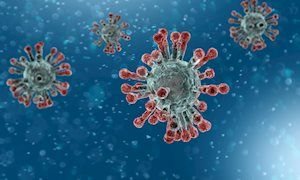6 January 2020
Lower respiratory tract infections (LRTI), such as pneumonia, are a leading cause of death especially in children below the age of 5 years. Low and middle-income countries (LMIC) have the highest burden of childhood pneumonia. Most LRTIs are caused by viruses, but differentiating viral from bacterial causes is mostly impossible due to the lack of accurate diagnostics. As a consequence, most cases are treated empirically leading to overuse and misuse of antibiotics, which is an important driver of the global epidemic of antimicrobial resistance. In this project a newly developed diagnostic device, which is based on the entrapment of aerosols from the lower respiratory tract will be used to identify the etiological agent in children with LRTI.

Lower respiratory tract infections (LRTI), such as pneumonia, are a leading cause of death especially in children below the age of 5 years. Low and middle-income countries (LMIC) have the highest burden of childhood pneumonia. Most LRTIs are caused by viruses, but differentiating viral from bacterial causes is mostly impossible due to the lack of accurate diagnostics. As a consequence, most cases are treated empirically leading to overuse and misuse of antibiotics, which is an important driver of the global epidemic of antimicrobial resistance. In this project a newly developed diagnostic device, which is based on the entrapment of aerosols from the lower respiratory tract will be used to identify the etiological agent in children with LRTI.
Related news items

Antibodies are sustained in nasal fluid after mild corona infection
27 September 2021 Testing through nasal fluids is easier than through blood read more
Less inflammation with a traditional Tanzanian diet than with a Western diet
18 February 2021 Study shows differences between western and traditional diet. read more
Trained immunity: a tool for reducing susceptibility to and the severity of SARS-CoV-2 infection
17 February 2021 In a review in Cell Mihai Netea, Frank van de Veerdonk, Reinout van Crevel and Jorge Dominguez Andres propose that induction of trained immunity by whole-microorganism vaccines may represent an important tool for reducing susceptibility to and severity of SARS-CoV-2. read more
ZonMw grants to study optimal use of COVID-19 vaccines in patients with impaired immune systems
3 February 2021 How do people with reduced immunity, especially kidney patients, react to a COVID-19 vaccination? And how can patients with peripheral arterial disease be helped by DNA testing? Our researchers received grants from ZonMw to make these studies possible. read more

